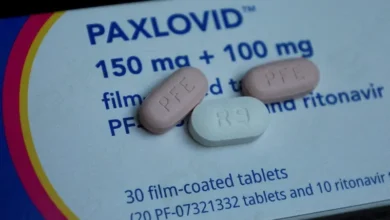How aspartame’s safety made the agenda of the WHO’s cancer research arm

The imminent move to label aspartame as a possible carcinogen comes after years of advocacy from a leading consumer group in the United States and a handful of cancer scientists hoping to settle a decades-long debate over the sweetener’s safety.
Reuters reported last month that the cancer research arm of the World Health Organization (WHO), known as the International Agency for Research on Cancer (IARC), was set to make that declaration on July 14, according to two sources with knowledge of the process.
The designation as “possibly carcinogenic to humans” will provide an incentive to fund more rigorous research into the safety question, toxicology and cancer experts say.
“I don’t see how, without better-designed studies, we can make any conclusions on this,” said Andy Smith, a professor with the MRC Toxicology Unit at the University of Cambridge.
Smith said regulators worldwide may also reconsider the data in the wake of the IARC declaration and an upcoming review by another WHO committee.
Aspartame is one of the world’s most widely used sweeteners, appearing in products from Coca-Cola’s Diet Coke to Mars’ Extra sugar-free chewing gum, but questions have been raised about its safety since not long after US health regulators first approved its use four decades ago. Regulators worldwide have ruled that as-partame is safe to consume within set limits.
“Since 1981, when the product got formal approvals, there has been ongoing controversy,” said Peter Lurie, president of the US-based Center for Science in the Public Interest (CSPI). “We have been pushing for an IARC review for many years now.”
IARC, a semi-autonomous arm of the WHO, rules whether a substance is potentially carcinogenic based on all the published scientific evidence, but does not take into account how much a person would have to consume for it to be risky.
The “possible carcinogen” classification also reflects the limited evidence suggesting a link, and puts aspartame in the same category as whole-leaf extract aloe vera and some pickled vegetables.
A separate recommendation on safe consumption levels is also expected on Friday from the Joint Food and Agriculture Organization/WHO Expert Committee on Food Additives (JECFA).
New evidence
The IARC first said aspartame was a “medium priority” for review in 2008. It was nominated again in 2014 by the CSPI, Lurie said, with the support of former top IARC official James Huff and consultant Ron Melnick, both cancer experts who used to work at the US National Institutes of Health.
After the 2014 nomination, aspartame was listed as “high priority” by the IARC “because of its widespread use, lingering concern over its carcinogenic potential, and recent reports of positive findings in studies of carcinogenicity in animals,” according to docu-ments published at the time by the agency.
But no action was taken until 2022, after aspartame was again nominated for review by CSPI and Melnick in 2019.
“There’s been a huge number of studies performed on aspartame, which overwhelmingly show that it’s very safe, and has no carcinogenic potency,” said Dr Samuel Cohen, a professor of oncology at the University of Nebraska Medical Center who has studied sweeteners for decades, served on a number of expert panels and consulted for industry.
Industry bodies said the JECFA review was a more important moment and IARC’s review could “mislead consumers.”
The IARC declined to comment on the lack of action on aspartame for over a decade. The agency updates its priority list every five years, and usually deliberates on many — but not all — of the substances in each period. Some items are reconsidered: coffee, for example, was listed as a possible carcinogen in the 1990s, but taken off the list in 2016.
The research body has said “new evidence” prompted its aspartame review, without giving any details. Experts point to studies since 2000 that signal a potential risk in animals and humans as the likely triggers for the IARC. However, none are definitive in showing a link.
The most recent study came out in March 2022. It was an observational study from France among 100,000 adults and showed that people who consumed larger amounts of artificial sweeteners, including aspartame, had a slightly higher risk of some cancers.
However, the NutriNet-Sante study led by researchers at the University of Paris does not show that the risk was caused by aspartame and critics say its design, based on people self-reporting their real-world consumption of sweeteners, is a limitation.
Erik Millstone, a professor of science policy at Britain’s University of Sussex, said the French finding, while not authoritative, was likely to have been a factor in the IARC discussion. The French researchers declined to comment.
“That’s important — there are new data from new studies,” Millstone said. “Plus, aspartame is just about the most widely used additive on the planet.”










